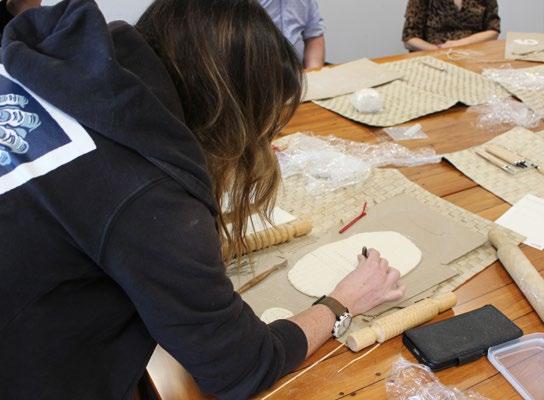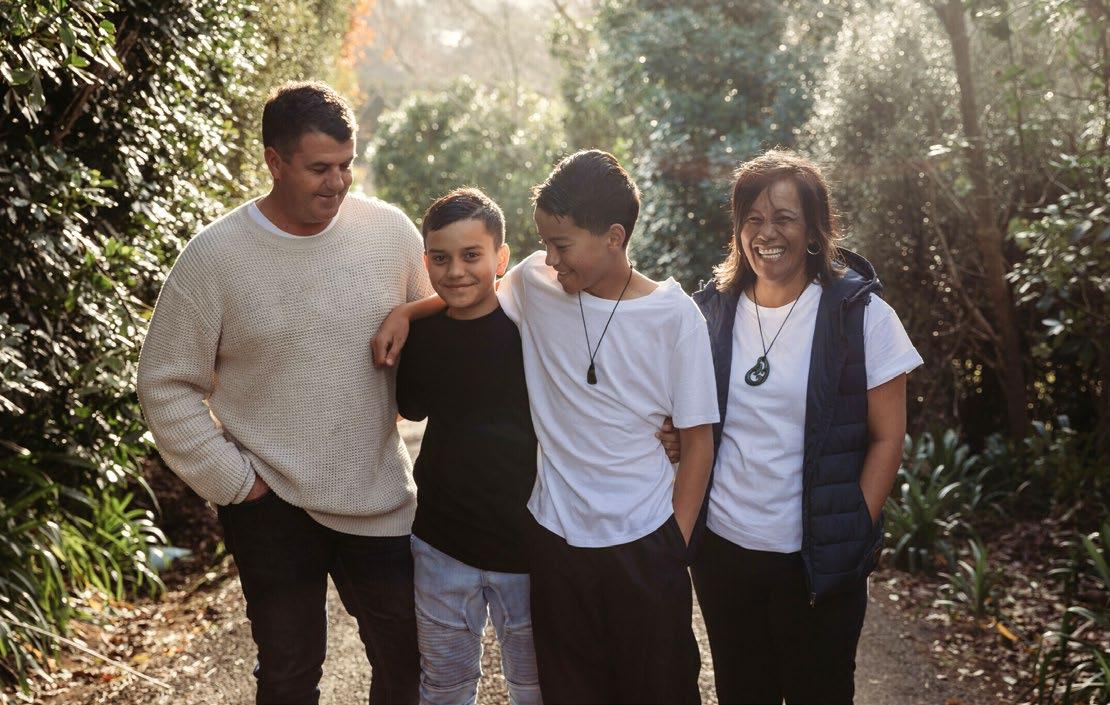
17 minute read
Māori Health Planning and our Iwi Partnerships
04
Māori Health Planning and our Iwi Partnerships
Advertisement
Our Health Strategy Te Toi Huarewa and principles that are within the strategy continue to guide our approach towards equitable health outcomes, particularly for Māori.
OUR PRIORITIES
Whai Mana – Equity, Whai Rangatiratanga – Sustainability, Whai Ora – Quality Healthcare, Tino Rangatiratanga – Self-determination, Mana Motuhake – Autonomy, remain steadfast through the challenges that we face particularly with the COVID pandemic.
Ko te pae tawhiti, whāia kia tata, ko te pae tata, whakamaua kia tīna. Seek out distant horizons and cherish those you attain.
This year we continued to strengthen our cultural intelligence and understanding of its correlation with equity. Our cultural journey has been embraced by the team resulting in a positive cultural shift and transformational change within the PHO. In tandem, with significant collective effort and resources, we have invested in creating an organisational culture of equity.
Daily Karakia/Waiata Huddles
Each day at the Western Bay of Plenty PHO starts with karakia (prayer) and waiata (song). Wednesday’s huddle known as Te Ōhanga has become a special day where staff have turns to share their own cultural tale, whether it be about their upbringing, values, beliefs, whānau traditions, or their language.
A culturally responsive organisational culture tends to: • Respond versus react, and critically reflect on unconscious biases and value systems • Possess a strong learning culture and commitment to continuous improvement • Recognise, celebrate, and leverage difference and diversity
Director of Māori Health Kiri Peita (Ngāi Te Rangi and Ngāti Ranginui) says when we seek to understand and celebrate diversity, we can learn to respond in culturally intelligent and relational ways.
“Te Ōhanga is about awakening our understanding about ourselves, and the teams we're a part of, in a mindful pause.”
He Pounamu
A structured Te Reo Māori learning programme has been developed and owned by staff. There is a whakataukī (proverb) Ahakoa he iti, he pounamu- although it is small it is a treasure and has great value. Within this context it means, whatever we learn- no matter how small – it is valuable and adds to our kete of knowledge.
Our team came together, in person and remotely, to join others in Aotearoa for Te Wiki o te Reo Māori Language Moment. We were keen to be part of history as the Māori Language Commission sought to set a new world record with its award-winning Māori Language Moment. We sang a repertoire of waiata. Through this one action as a team we demonstrated the normalising of te reo Māori and protecting an endangered language. Scottish-born Laura Penny shared traditions from her homeland.
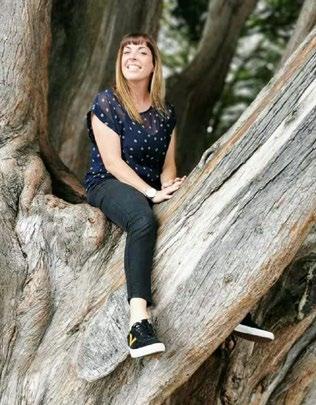
Cecilia Wu wears a traditional cheongsam, also known as a qipao, a dress that originated in 1920s Shanghai.

Haerenga participant HAERENGA PHO whānau took a guided haerenga (journey) under the guidance of a local Ngai Tamarāwaho kaumātua Matakori Des Tata. The experience included a full-day trip around Tauranga Moana: Otūmoetai Pā, Mauao, Pukehinahina in Gate Pa, and Te Ranga in Pyes Pa where everyone learned about the cultural history of the sites and enjoyed a pōwhiri at Whareroa Marae.
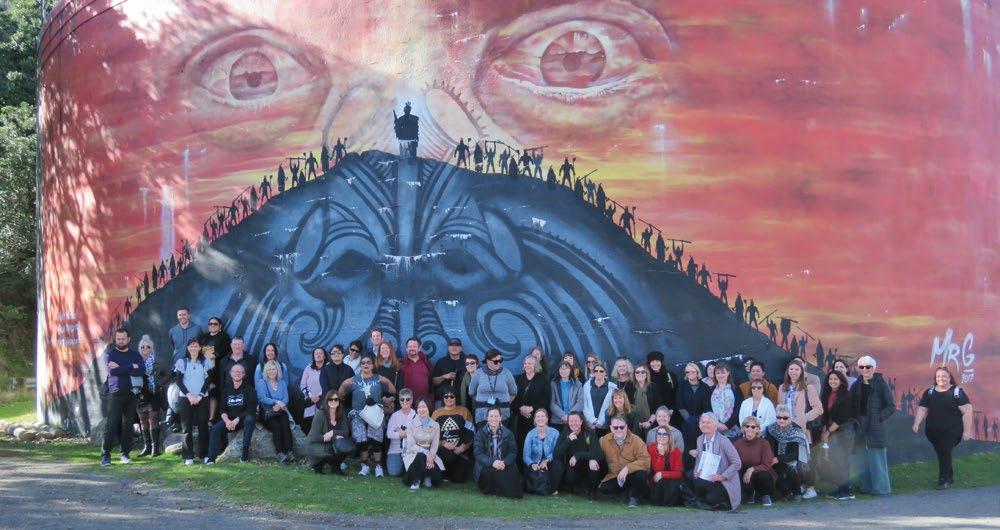
Feedback from participants
Staff were asked to reflect on their cultural journey and how it has influenced their mahi and/or changed their practice. Following are some whakaaro (thoughts):
“The haerenga felt like an opportunity to walk in tangata whenua shoes. Hearing from our Kaumātua about the spaces in which we live and enjoy and the history of what occurred in them was confronting, but it was important to understand the history of what this rohe has gone through so that we can address the inequities for tangata whenua, acknowledging that there are still Government Acts and Policies in place to disadvantage Māori.”
“The quote by Roy Bennett, ‘Listen with curiosity, speak with honesty, act with integrity’, speaks to empathy and about understanding another’s story. We need to be careful about speaking with honesty in the environment we are in as we are at risk of creating an echo chamber. We need to find ways to encourage conversations with people that still need to understand the ‘why’ when we come across people in our organisation or the community that are resistant to equity concepts.”
“It’s about recognising there is no future without the past. Trying to look at inequity within healthcare (and Aotearoa society) is impossible without full recognition of recent past events and trauma that families have faced and still feel and carry with them in a very real way to this day.“
Our climb part way up Mauao where we stopped to admire the mural by local artist Mr G.
GENERAL PRACTICE SUPPORT As well as developing our internal capabilities we continue to support our General Practice partners on their own cultural journeys.
General Practice whakaaro is captured below on how some of our equity activities have impacted patients or changed practice.
Understanding equity vs equality
Consumer engagement and co-design
“Following on from an initial whanaungatanga event with Kaumātua, the Practice is now progressing with the next steps. We plan to invite multi-generational whānau to walk with us through our buildings and review our communication systems (including website/ Health 365 etc) to ensure a Māori perspective in all that we do.“
Equity Tool – Snakes and Ladders (with a twist).
Comment from a Very Low-Cost Access Practice was: “The Snakes and Ladders game helped highlight the actions we were already doing well and enabled the team to come up with some ideas to make patients feel even more welcome.”
Tailored training to meet Foundation Standards and Cornerstone Accreditation, e.g. pronunciation of Māori patient names, relationships with local community
“We had a very strong relationship with the local hāpu many years ago and over time it has drifted off. We want to strengthen the relationship so we can work together. “
Cultural Training
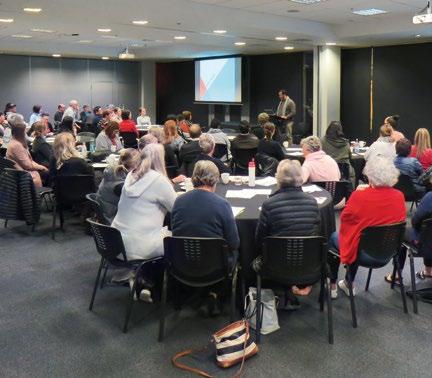
The Western Bay of Plenty PHO and its network of General Practices (in total 208) took up the opportunity to learn together about Te Tiriti o Waitangi, cultural safety and competence, racism and discrimination in all forms and all forms of biases, conscious and unconscious. The training was part of our commitment to achieve equity of health outcomes for Māori in our communities.
Cultural Training participant
HIGHLIGHTS FROM IWI PARTNERS
Ngāti Rānginui – Te Āhunga Whānau
Te Āhunga Whānau (meaning whānau-directed, human-centered and whānau-focussed) supports a whānau ora model of care with mobile nursing and kaiāwhina teams working with people living with long-term health conditions to help them re-connect with General Practice.
Te Āhunga Whānau is a 12-month pilot project targeting people with conditions such as heart disease, respiratory disease and diabetes. Five practices are involved in the pilot, including three in Western Bay of Plenty and two in the East.
“For a lot of our whānau putting food on the table and a roof over their head is their number one priority, with health needs sitting further down the list,” says PHO nurse Tamar Courtney. “They’re not engaging with their General Practice so our role is to unpack their needs so they are comfortable to return to their General Practice and understand what they can support them with.”
The first step involves kaiāwhina building relationships with patients and their whānau. They are there to enable whānau to self-manage their health. And having both a kaiāwhina and a nurse ensures clinical as well as social needs are being addressed
Ngāti Ranginui CEO and PHO Board Co-chair Mel Tata says Te Āhunga Whānau is about redesigning what General Practice is for Māori. “Whānau will create their own health plans, define their own hauora and come to their GP already aware of what they want to see because they have had the opportunity to have those conversations in their own environment with familiar faces. It’s about people taking ownership of their health and a culture change from focusing on illness to focusing on wellness.”
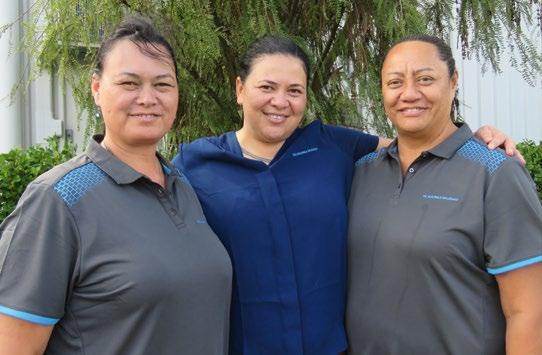
Nurse Tamar Courtney, Ngāti Ranginui CEO Mel Tata and Kaiāwhina Leanne Faulkner welcome the Te Āhunga Whānau pilot programme which they hope will be rolled out across the region.
Ngāi Te Rāngi – HbU taking healthcare to the people
For those who can’t afford after-hours healthcare, can’t take time off work during the day, or aren’t enrolled with a GP, Ngāi Te Rangi’s mobile health unit HbU has been a lifesaver for more than 12 years.
Established in 2009, the mobile waka was originally targeted at providing services for rangatahi (youth) – hence the text-speak name HbU which means ‘how ‘bout you?’
Over the years it has evolved into a free walk-in service for the whole whānau with more than 2000 people accessing healthcare each year, 70% of them Māori.
From its early beginnings operating three nights a week, it now operates five nights a week in Katikati, Welcome Bay, Mount Maunganui, Merivale, and Pāpāmoa, from 6pm9pm, as well as being involved in new community initiatives such as a men’s health clinic and kaupapa Māori vaccination clinic for COVID-19.
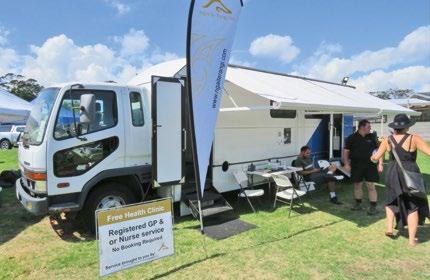
The mobile waka initially targeted healthcare for rangatahi but has evolved into a free walk-in service for the whole whānau.
Dr Murray Hay has been HbU’s doctor since 2009, with Dr Emma Stanley joining the team last year to assist during the COVID-19 lockdown when the waka was used to coordinate healthcare and social services for Tauranga’s homeless community.
HbU Mobile Health Service Manager Emily Gudsell says, “HbU can be deployed in many different ways depending on what the community needs are, whether it’s a pandemic emergency situation, right through to your after-hours acute patients who just cannot get to their GP or won’t go to a GP for whatever reason.”
HbU is funded and supported by WBOP PHO. Director, Māori Health, Kiri Peita, says improving healthcare access for whānau is invaluable. “Ngāi Te Rangi also provides the added benefit of connecting whānau to social supports if needed.”
Improving access to health and wellbeing services for island communities
We have been working on a socially-led initiative in partnership with whānau on Matakana Island and Mōtītī Island. Alongside whānau groups on each of the islands, we have explored the potential benefits of a telehealth service for each community. We have established telehealth capability, improved the internet connectivity on each island, including internet service and cellular coverage.
From the onset of the project, the intent of the project was that there would be true engagement and co- design of a telehealth service with the island communities and we would honour the principles of Te Tiriti o Waitangi (Tino Rangatiratanga, Active Protection, Equity, Options).
At Matakana Island, Te Awanui Hauora Trust CEO Te Uta Roretana says residents are excited about the opportunity to improve their access to healthcare. “Living on an island presents multiple challenges to accessing healthcare, including transport, cost, and time. Residents currently pay about $80 per return vehicle on the barge to take them into town for specialist appointments so the ability to have digital consultations will be of great help. We will also be able to use the technology to access online education and training. During COVID-19 [pandemic] quite a few of our whānau became very tech-savvy and we’d like to continue with that.”
A system to enable primary and secondary care consultations with patients via the use of telehealth modalities will be designed by the whānau. We have planned co-design workshops on Matakana Island. The workshops will include PHO, DHB, Ministry of Health, General Practice Ngāti Kahu Hauora, Te Awanui Hauora (Matakana Island Health Provider) and residents.
The PHO is aiming to better understand current experiences with the health system, identify preferred solutions and a sustainable model of care to improve residents’ overall health and access to services.
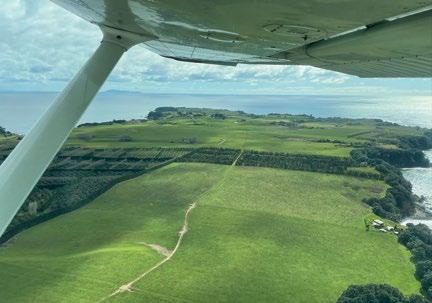
Fly-in, drive-through clinic
In September, the Bay of Plenty achieved a first for the COVID-19 vaccination rollout with a fly-in, drivethrough vaccination clinic at Mōtītī Island.
The clinic was a collaboration between Ngāti Ranginui, Ngāti Kahu Hauora and Island Air. This initiative boosted the Bay of Plenty’s vaccination rate and supported the aim of ensuring access to the vaccine is as easy as possible for all.
Thirteen people were vaccinated, with 11 receiving their first dose and two further residents received their second. Afterward, one individual said that they would now feel better protected from COVID-19 when visiting the mainland.
Mōtītī Island was closed to visitors during the Alert Level 4 lockdown. A second drive-through clinic was held on the island in October.
RADIO MAST INSTALLED ON MATAKANA ISLAND Major progress was made on delivering telehealth services to Matakana Island with the installation of an 8m high stainless steel radio mast in April. The mast was installed next to Te Awanui Hauora Trust’s clinic building.
The project is a collaboration between the PHO, Western Bay of Plenty District Council and Bay of Plenty District Health Board. The council funded the radio mast while the DHB donated both diagnostic equipment for the clinic and technical expertise. As well as funding the installation of the 4G radio bridge on the mast, the PHO has led the community engagement. The radio technology adopted is the same type used in outback Australia. The fly-in, drive-through COVID-19 vaccine rollout to Mōtītī Island took place on 6 September, 2021. Featured left is Dr Claire Isham, PHO clinical director and GP Liaison Lead for the Bay of Plenty DHB’s COVID-19 vaccine team; and right is vaccinator and registered nurse Margaret Tunbridge-Ross.
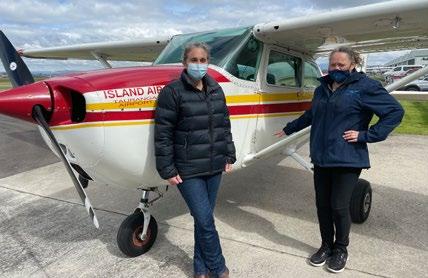

WBOP PHO Director, Māori Health, Kiri Peita (centre) with fellow equity module accreditors at their training session last year.
Embedding equity into General Practice
The Royal New Zealand College of General Practitioners has introduced Equity as a compulsory module for General Practice to achieve or maintain Cornerstone Bronze. The Equity Module demonstrates how practices can work to improve health outcomes for Māori and other underrepresented populations by being more targeted to individual and cultural needs that can make significant differences to patient and whānau care. Our Director, Māori Health, Kiri Peita, was one of the first five people in New Zealand to complete the Equity Module Accreditor training, allowing her to accredit General Practices that have completed their Cornerstone Equity module. Kiri says her motivation to become an accreditor was to add to her kete of knowledge and to identify opportunities to best support General Practices to achieve accreditation in a meaningful way.
The Health Care Home (HCH) model of care was enhanced in late 2020 with a focus on equity, consumer involvement and honouring Te Tiriti o Waitangi. Three of the seven General Practices participating in the Western Bay of Plenty PHO’s Health Care Home project learned how to co-design services with their patients as part of a sponsorship arrangement with the Health Quality & Safety Commission. Co-designing services with patients is a key feature of the HCH model. Some practices opted to go on this journey independently, whereas others took the opportunity of having ongoing expertise and support. Sponsorship from the Health Quality & Safety Commission has enabled professional development workshops as well as remote training sessions for those practices involved. All three practices have chosen equity-focused design projects with a view to enhancing patient experience and engagement.
This year PHO Chief Executive Lindsey Webber and Director of Māori Health, Kiri Peita, co-presented at the national GPCME Conference on the PHO’s journey to create an organisational culture of equity.
Te Āhurutanga Rōpū
A rōpū was established for kaimahi Māori in October 2020. All kaimahi who identify as Māori are welcome to be part of the rōpū which meets bi monthly. Currently, there are 18 members.
The purpose of the Te Āhurutanga Rōpū is: • Whanaungatanga – to work together to support one another • Wairuatanga – to replenish our wairua/ wellbeing and affirm a sense of belonging in our workplace • Kotahitanga – to have a unity of purpose and collective action • Manaakitanga – to care for others • Kaitiakitanga – to preserve and protect our taonga
Te Āhurutanga Rōpū serves as a korowai (traditional cloak) for the PHO’s kaimahi Māori. The korowai is symbol of mana and leadership. Mā te huruhuru, Ka rere te manu – Adorn the bird with feathers so it can fly. This whakataukī reflects the idea that a bird cannot fly without feathers, but if you give the bird what it needs, it can thrive.
The forum provides a wāhi āhurutanga (culturally safe space) to share whakaaro, maintain/ build resilience, brainstorm, be proactive, support the wider PHO whānau with their journey and understanding of mātauranga Māori, and celebrate being Māori within our work environment.
Director of Māori Health, Kiri Peita, says a culturally safe work environment ensures kaimahi Māori feel comfortable, supported, valued, and respected so everyone can perform their best mahi.
Since forming, the rōpū has established its terms of reference and led various initiatives including karakia/ waiata huddles, activities for Māori Language Week, and supported HR changes that give Māori representation on interview panels for senior staff and management.
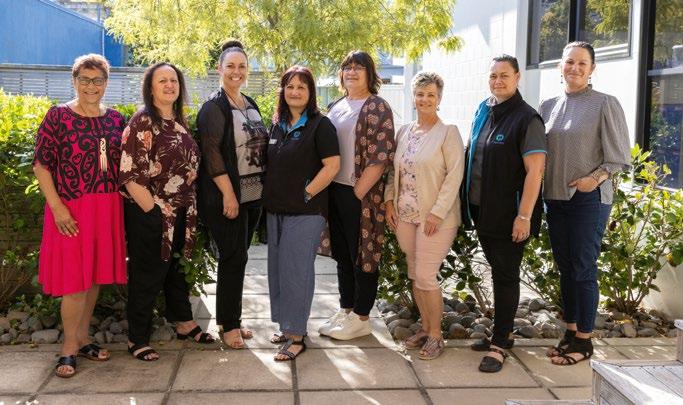
Clear the undergrowth so that the new shoots of the flax will grow.
CULTIVATING NEW BEGINNINGS
Haraekeke (flax) is the plant at the heart of Māori weaving and people and community are at the heart of our primary healthcare network.
This year, the two combined in a creative expression of the Western Bay of Plenty Primary Health Organisation’s cultural and equity journey and the whakataukī that underpins our work. The Māori proverb, gifted to us by respected rangatira Dr Morehu Ngatoko Rahipere, reminds us every day of the benefits that can come from leaving behind ways of doing things and finding opportunties for growth in new areas as we strive for quality and continuous improvement.
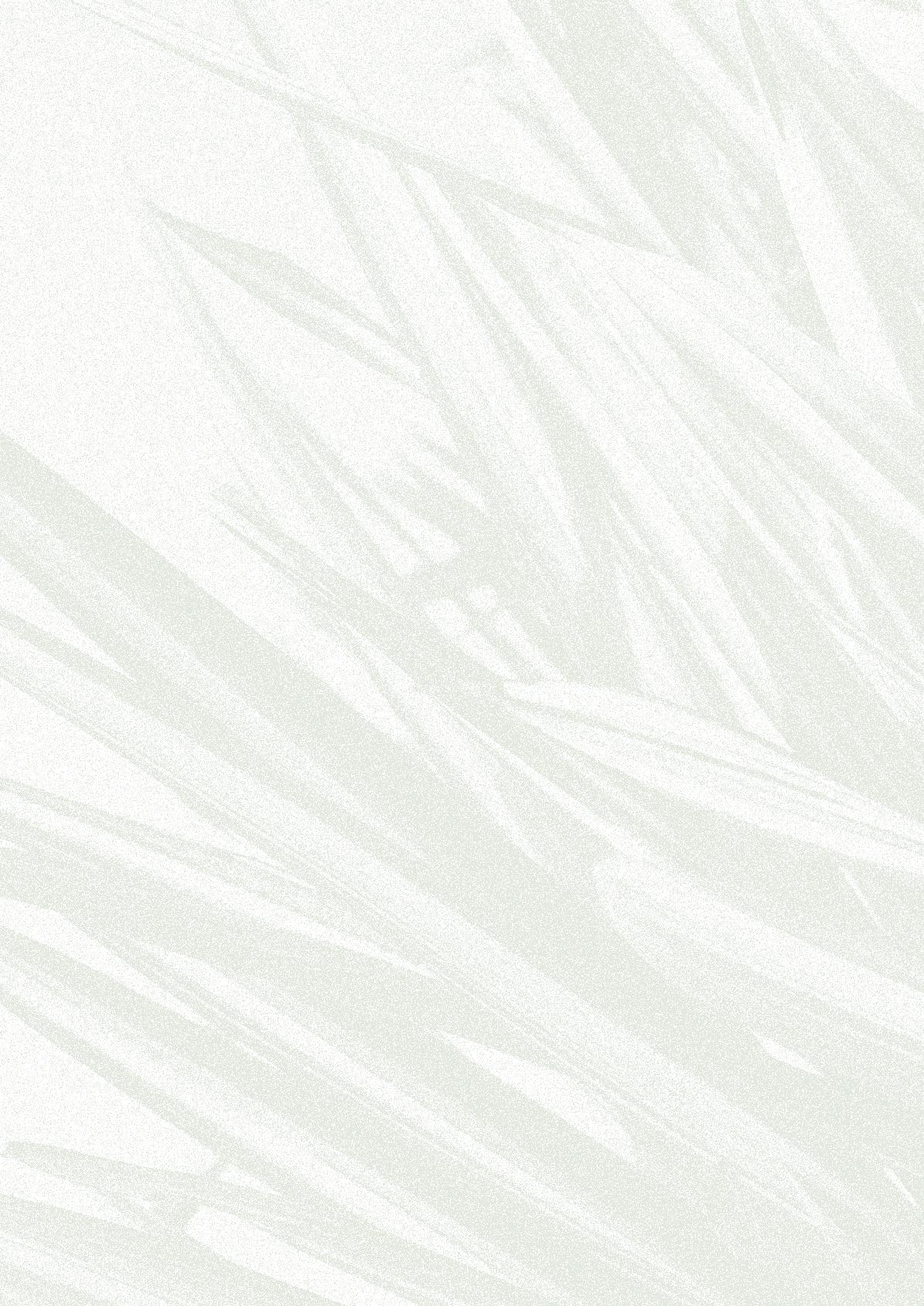
Tūngia te Ururua, kia tupu Whakaritorito te tupu O te harakeke. Clear the undergrowth so that the new shoots of the flax will grow. Our cultural journey with a deliberate focus on equity, started in 2019, has been a journey of self-reflection, with people taking opportunities along the way to pause and quietly consider their own connection to place, whānau, language and culture. Through sharing more of ourselves, as a team we have strengthened our own relationships and developed a deeper appreciation of diversity.
The meaning that each of us attach to the PHO’s whakataukī may be slightly different, but through diversity comes strength. Having the opportunity this year to create a collaborative artwork inspired by the whakataukī was another step in our journey to better express ourselves, our journey, and the role we play in upholding the PHO’s core values: • Whai mana – equity • Whai ora – quality healthcare • Whai rangatiratanga – sustainability • Tino rangatiratanga – self-determination • Mana motuhake – autonomy
For generations, Māori have cherished harekeke and cultivated it in special plantations. It continues to play a role in contemporary Māori art, with respected artist and teacher Maraea Timutimu (Ngāi Te Rangi, Ngāti Ranginui, Ngāi Tūhoe) inspired to use it with our team to create a collective art installation.
She facilitated a workshop where participants used a combination of harakeke fibres, seeds and raranga (weaving impression) to personalise clay wall hangings. Each unique composition will form part of the collective installation.
To take pride of place on the wall in our First Avenue office, the mahi toi (artwork) serves not only as a visual representation of the whakataukī, but as a celebration of diversity and the strength that comes from the group as we collectively rise to the challenge of reorganising our healthcare model to embrace a pro-equity approach and deliver improved services based on the needs and priorities of our local communities.
